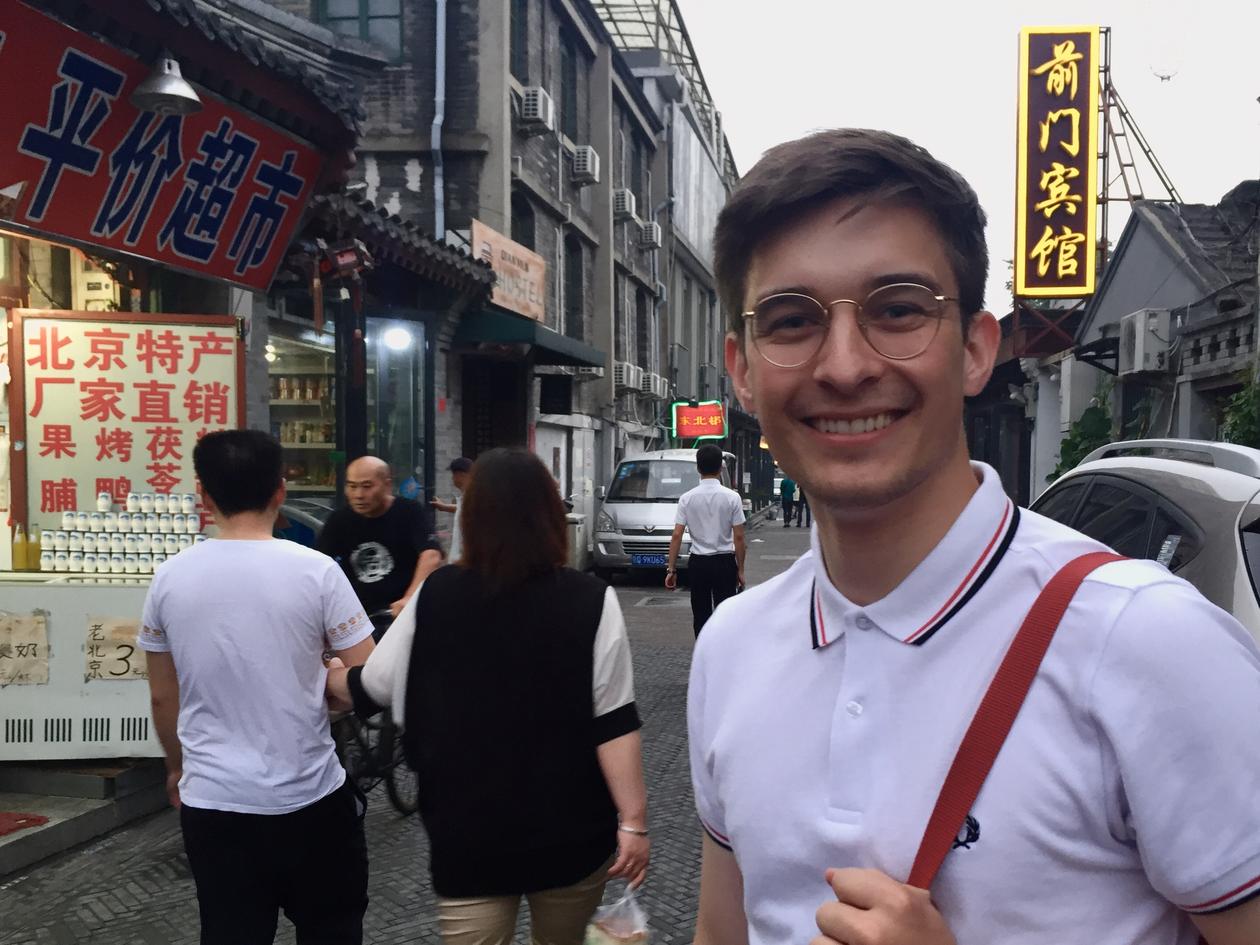Learning about Chinese law in Beijing
Ten law students from Bergen are in China this month in order to learn more about Chinese law and legal culture.

Main content
"We're having a fantastic time! The days are rushing past and our month in Beijing will be over before we know it," says Andreas Slettevold.
Andreas and the other students from the University of Bergen have been attending a 4-week course, the Chinese Law Summer Programme, at Renmin University in Beijing as part of the course "Legal history and comparative law with special focus on Chinese legal culture". This summer programme has been organised each year since 1998 by Renmin University Law School, but this year is the first time that students from Bergen have had the opportunity to join the programme as part of their Master's course in law.
Several student exchange agreements with China
One of the aims of the Chinese summer programme is to encourage the participating students to undertake a longer exchange programme in China once they have made further progress with their studies. The Faculty of Law has had student exchange agreements with several Chinese universities since 2011 and has both sent and received students under these agreements.
For Andreas his attendance at the summer school in China was not his first experience with the country. He learnt Chinese at upper secondary school, studied in Beijing and has held an internship at the Norwegian Consulate General in Guangzhou. However, he thinks that the course on Chinese legal culture is equally interesting for students without any particular experience of China.
He says: "Even though China is a country with several thousand years of written history, in many ways they have a young legal system. Much of their legislation has been formulated during the last 30-40 years. It is developing at a rapid pace and serves as an incredibly exciting basis for comparison in subjects such as legal history and comparative law."
Need for better expertise
A knowledge of different legal cultures is important for future lawyers and it is important for the functioning of international cooperation. China is increasingly becoming more involved as a key player in the global arena, both politically and economically. This creates the need for the systematic development of expertise on the Chinese legal system in general, but particularly in those areas of law which apply to Norwegian businesses with, or planning, activities in China. Students on the "Legal history and comparative law with special focus on Chinese legal culture" course obtain knowledge about what legal culture is and how it is formulated and transformed when faced with aspects of legal culture from elsewhere. The programme provides an insight into areas of law which are particularly relevant in China at the present time, such as Chinese labour and environmental legislation. This will provide the students from Bergen with unique expertise.
Andreas says that the lectures in China are informative and of current interest. The students have experienced a lot in a short time and their visit has met the high expectations that Andreas had before he went.
He says: "Apart from the lectures and visiting the most important landmarks in and around Beijing, we have visited the Supreme People's Court, we have observed a criminal court case and we have visited the China International Economic and Trade Arbitration Commission (CIETAC) and the National People's Congress. We met lawyers there who told us about their work in parliament, in the Court of Arbitration and in the courts. They have provided us with an excellent insight into the inside workings of their legal system."
Great interest in the programme
Renmin University Law School is regularly ranked as one of the two best legal faculties in China. This year the University of Bergen had 10 places on the summer programme in Beijing and 68 students applied to attend. Based on this great interest the Faculty is now talking to Renmin University about the possibility of increasing the number of places if the experiences acquired this year indicate that the offer should continue to apply in the future.
Certainly the experiences gained by Andreas have been good ones. In addition to increasing his professional expertise he has also benefited from many social and cultural experiences.
He explains: "There are plenty of major experiences and impressions to be gained in a big city like Beijing, but I have probably been most interested in small things like wandering along the small, narrow streets in the Hutong area in the centre of the city, doing some reading in a back street café, eating steaming dumplings, Peking duck, lamb skewers and boiling hot soup until it gets dark, and then leaning back in a taxi on my way home while looking at all the neon lights through the window."
This article is translated by Amesto Translations.
